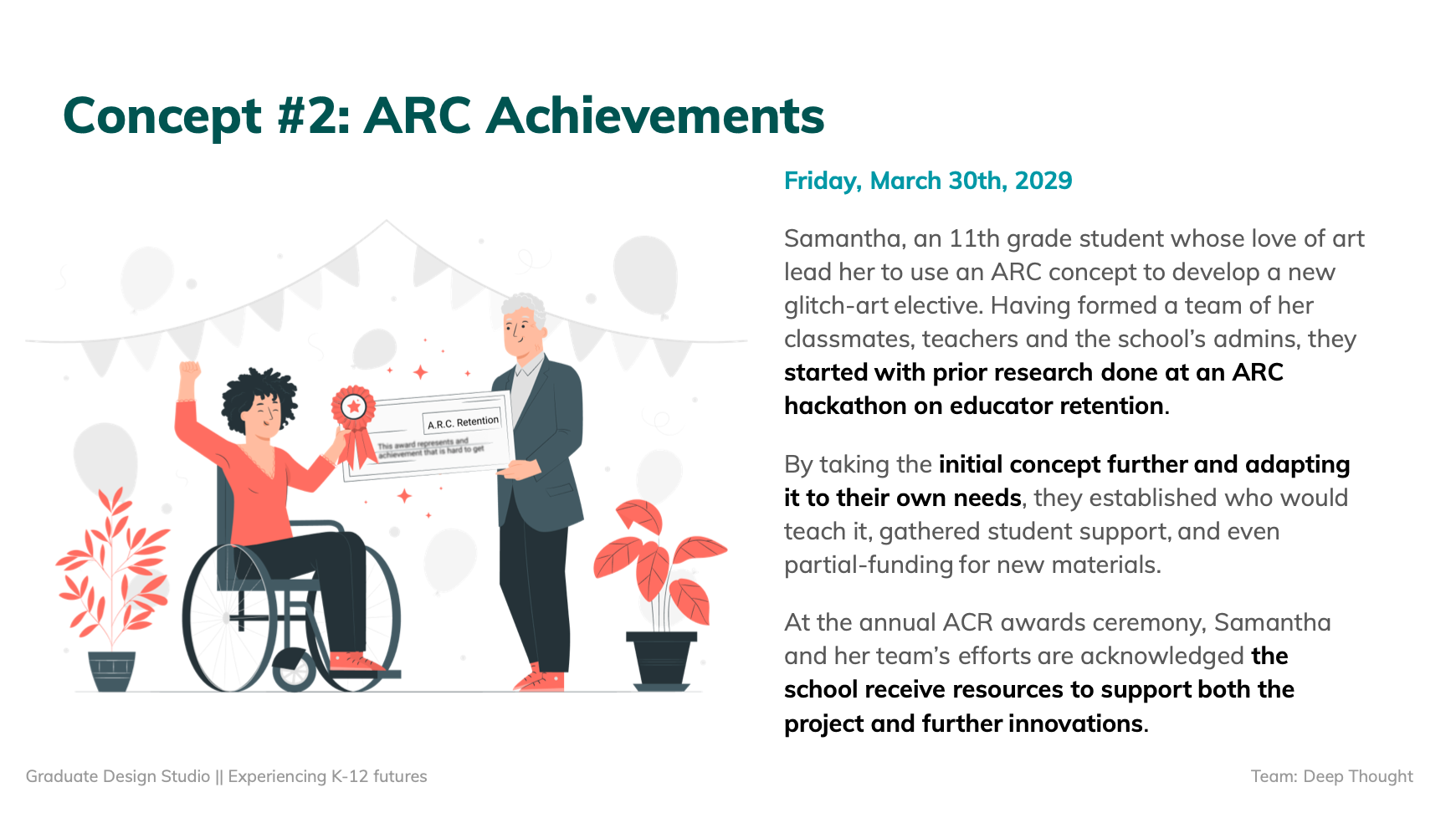Fiona Hovenden (of Prospect Studio) was back in class with us this week. Monday through Wednesday blurred together as our team worked around the clock to bring our findings into coherence. Through this process, we found that it was easier than past presentations for us to produce clear and concise summaries of our work. This outcome stems from two key advantages:
Our team continues to get better at coordination and understanding of each other’s strengths and weaknesses. This has accelerated our communication and the delegation of tasks.
As we continue living and breathing in this problem space, we have gained deep familiarity with core concepts and structures. This has allowed us to develop a kind of fluency in addressing Portland Public Schools as a topic.
There is still a lot that we do not know, but this is something which we must (as a matter of need) become comfortable accepting as a default state. There are limits to what we can and cannot know over a fifteen week period, with limited access to our stakeholders.
Nevertheless, we are slowly inching toward viable concepts.
These concepts are derived from last week’s workshops and diary studies. There was a lot of doubt and uncertainty going into our work last week, as we started with a zero participants. By Tuesday, all of this changed, and we found ourselves scrambling to coordinate with five different participants. Additionally, we coordinated with our counterparts (“Team Ahaa”) and I even took part in one of their workshops—after nearly 11 years of living in Portland, I had some qualified opinions to share.
This accelerated and compressed path from research to presentation ensured that we quickly moved from documentation to synthesis. Our team only had ten minutes to present all of this, and this constraint was helpful motivation to distill everything we learned over the last two weeks. So, what did we learn?
At a high level, generative research helped us to understand how educators see their relationship with various stakeholders. We gained more intimate, personal, and “day in the life of” perspectives from educators. We also got surprising feedback regarding their perception of possible futures. In general, there is not much hope for things improving substantially in the next ten years, but there is still a very real sense of urgency to make things better. This paradox has been with us since our first round of interviews but remains unresolved.
The most salient insights for our team were around issues of resilience and community:
Educators feel supported when colleagues show up and help proactively
Informal but reliable networks among educators support their resilience
Lack of resources and top-down surprises make teachers feel unsupported
Quality of life and mental health resources are poorly leveraged
“Empathy” and “Community” are other target areas in the Educator Essentials ring.
In our team’s presentation debrief, we had a lengthy discussion about this overlap, and our concerns about spreading ourselves too thin or not staying on target. This is an ongoing conversation and part of our general concerns for this project. We considered whether or not ARC is a “keystone” goal— resting on requisite conditions, and also essential to achieving other areas. This enmeshment is not entirely incompatible with the brief and Prospect Studio’s understanding of the problem space, but we must carry the burden of interpretation.
As we continue developing and evaluating concepts and potential interventions, we hope to achieve more focus on ARC, and to draw clear distinctions between outcomes and means to outcomes—e.g., is empathy an outcome of ARC, or is it a means to achieve ARC? This isn’t yet well defined, but I have faith in our team’s ability to resolve it.
Coming away from our Wednesday presentation, I can say that this task was both a relief and a source of pride. It was a huge relief to affirm key findings from Prospect Studio’s work, and also a moment of pride to have found these insights through workshops and protocols developed in house. This validated our research methods and demonstrated our core competency. Our protocols and assets were effective and entirely reproducible.
In terms of project management, we also took time to reflect on what was and was not working with our process and team contract. We do this every week as part of our “Rose, Bud, Thorn, and Shoutout” check-in exercise. We still felt more rushed than we’d preferred, and thought about ways to better support each other. We decided to designate “backup roles” to augment the facilitator and note-taker tasks. We hope that this will keep everyone equally engaged, while still offering flexibility and variety throughout the process. There are diminishing returns to these types of reforms, as we are already more than half way through the project. Nevertheless, every improvement counts.


